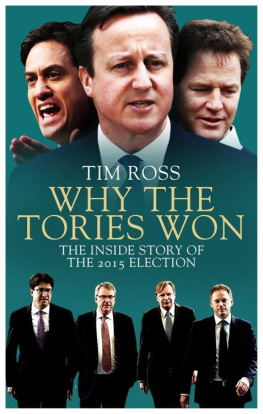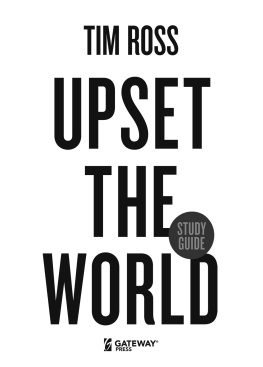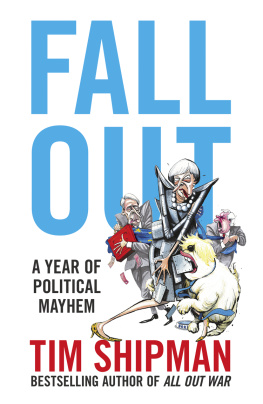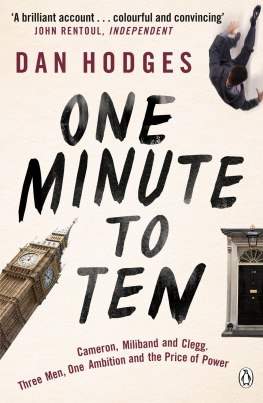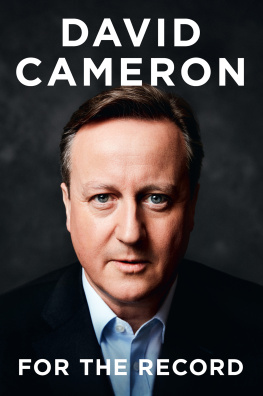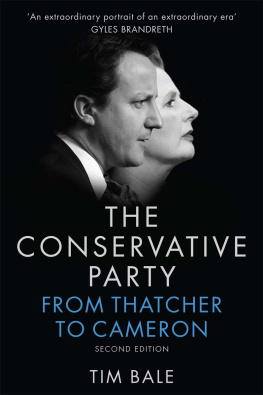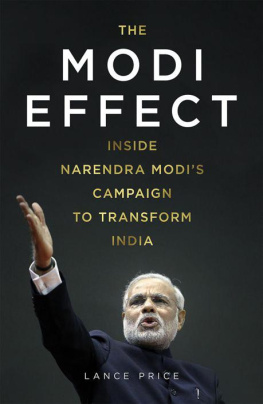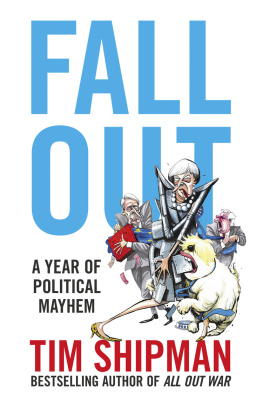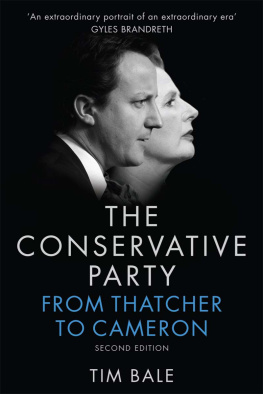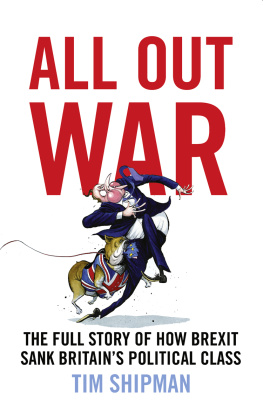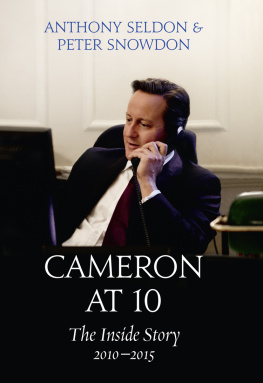ACKNOWLEDGEMENTS
T his book owes a huge debt to the generosity, patience, encouragement and attention of many people. There is time and space to acknowledge only a few of them here, though I am enormously grateful to everyone who helped with this project.
The foundation of this story is the material that has come from hundreds of interviews and conversations with original sources the large majority of whom asked to remain anonymous. Without them, and the secretaries and advisers who timetabled meetings with them, there would be no story to tell. Among those who agreed to be named in the book, I am especially grateful to the following: Nick Clegg, Nigel Farage, Boris Johnson, Lynton Crosby, Grant Shapps, Bob Roberts, Tom Baldwin, James Stewart, Alan Sendorek, Craig Elder, Martin Boon and James McGrory.
I am lucky to work with some of the most talented journalists in the country and am grateful to my editors at the Telegraph, colleagues at Westminster and friends for their ideas and support. I especially want to thank Craig Woodhouse, Thomas Penny, Tom Everest, Ian Collins, Peter Dominiczak, Kate Mayer, Ian MacGregor, Ben Riley-Smith, Christopher Hope and Steven Swinford. Frank Prenesti, Stephen Hall and Brendan Carlin spent long hours on French trains commenting on drafts and improved the text hugely.
The team at Biteback Publishing have been brilliant. Iain Dales early interest was the essential spur to embark on the book, and Olivia Beatties superb editing skills and deep knowledge of politics have been invaluable.
Without the support of my family, however, there would be no book at all. My parents carefully read early drafts of the manuscript and made numerous vital observations. By far the greatest debt is owed to my wife, Amy. She read every word, improved many and provided endless encouragement throughout, while somehow keeping our two small boys happy and still dimly aware of their fathers existence.
Every effort has been made by the editors and the author to iron out the wrinkles in order to get this story out into the world while it still holds interest. Any imperfections and errors that remain are mine.
INTRODUCTION
EXIT
A t 10 p.m. on 7 May 2015, a handful of numbers shocked Britain. The exit poll for the 2015 general election was so far from what every pollster and pundit had been predicting that none of the main party leaders could believe it.
Like millions of others across the country, the leaders were watching on television at home in their constituencies, with their families and closest aides. Ed Miliband turned to his advisers to ask if the exit poll was wrong. David Cameron hoped it was right but dared not quite believe that it was. A dumbfounded Nick Clegg reached for a packet of cigarettes.
Instead of a knife-edge election, with perhaps a dozen seats separating the two main parties, the exit poll forecast the Conservatives would win 316 seats, only ten short of an overall majority. Labour were trailing far behind on 239. In Scotland, the SNP were predicted to take all but one of the fifty-nine seats north of the border in an unprecedented landslide, while the Liberal Democrats were on course to hold just ten of the fifty-seven seats they won in 2010.
Inside Conservative headquarters in Westminster, jubilant campaign staff erupted. Perhaps only Lynton Crosby, the Tories Australian election strategist, and a handful of his colleagues who had been conducting seat forecasts in secret for months, were not astounded. As the first results were declared, showing swings to the Tories in crucial marginal seats, Crosby told his team that the exit poll was wrong: they were going to win a majority. By the morning, he had been proved right.
The scale of the shock that the Tory majority delivered can be measured in its impact on the partys opponents and other figures in the story. In the months before the election, both Labour and the Conservatives were making plans for ruling without a majority in their own right. Both, as it happens, were also preparing for the possibility of a second election later in 2015. But in the space of an hour on the morning of Friday 8 May, Ed Miliband, Nick Clegg and Nigel Farage had all resigned. Labour initiated an inquiry into what went wrong. The polling industry launched an investigation into how they failed to see the majority coming. UKIP descended into a spiral of infighting, with Farage ultimately reversing his resignation and seeing off an attempted coup. Meanwhile, Jeremy Corbyn, a radical left-wing underdog, emerged from the shadows to succeed Miliband as Labour leader.

This book is an attempt to understand how the Tories managed to pull off such an unexpected victory, in defiance of political history and every reputable opinion poll and professional expert who had offered a view. What techniques did the Conservatives use? Who was responsible for their success? Did they always know that they would win? What impact did the extraordinary failure of so many opinion polls have on the contest? Why did so many journalists, academics, pollsters, civil servants and politicians from all parties fail to see what was coming?
In order to answer some of these questions, this book relies on the first-hand accounts and personal testimonies of individuals drawn from the backroom offices to the very top of all the main parties. Some agreed to provide interviews on the record, but the vast majority many of whom remain active in politics needed to talk anonymously in order to be free to give their most candid reflections. Their generosity through hundreds of conversations, interviews, phone calls and emails has made it possible to piece together the inside story of the 2015 election. In the endnotes, the term private interview is used to attribute quotations and other information stemming from formal but anonymised interviews with sources, many of whom played extremely senior roles in the election campaign. References listed as private information in the endnotes refer to other material for which the confidential sources cannot be revealed.
This story needed to be written quickly, before the election-night shock faded too far from the public consciousness. It also had to focus on the battle for No. 10, which was only ever between David Cameron and Ed Miliband. While the Scottish political landscape was radically redrawn on polling day, with the SNP sweeping Labour and Liberal Democrat MPs from the map, the Tories won their majority entirely in the south. This essential fact means that the book does not dwell in detail on how the SNP won its landslide. That important story will be told by others.
The effect of the political earthquake in Scotland, however, was to send tremors south of the border that were felt in the homes of Liberal Democrat voters in Devon, Somerset and Cornwall, and those tempted to back Nigel Farage in Kent, Essex and Lincolnshire. Ultimately, the surge of the Scottish National Party provided an essential context for the Conservatives to launch their most damaging attacks on Ed Miliband.
In tracing the reasons for the Tories success in England, this book examines in some detail what happened to Ed Milibands campaign. The Conservative victory was also Labours abject defeat, as Miliband returned to Westminster with fewer MPs than even Gordon Brown managed at the height of his unpopularity, and amid a global financial meltdown, in 2010.

